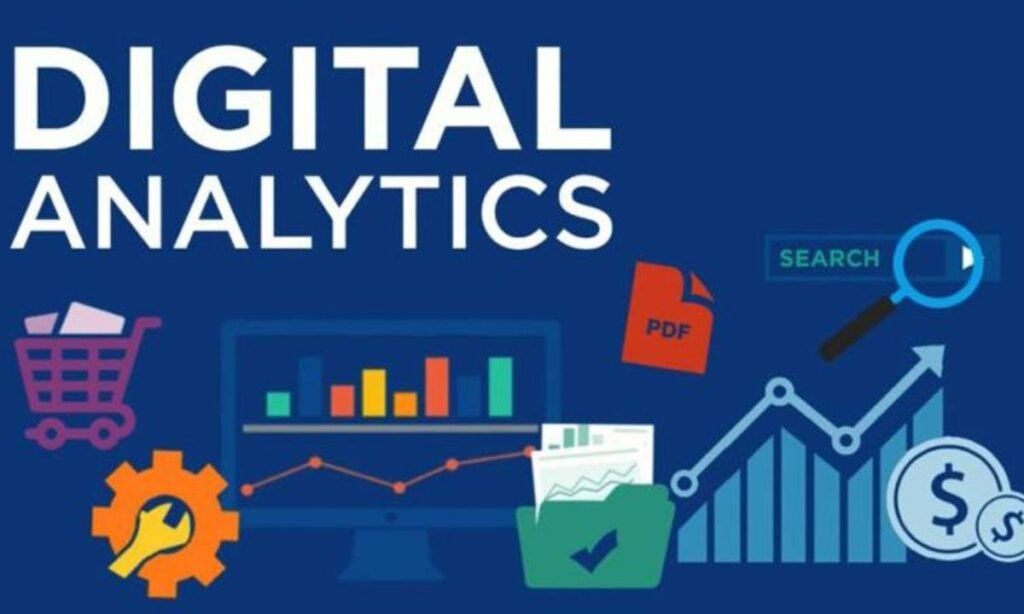Table of Contents
How Digital and Analytics are Transforming the Insurance Industry
In today’s fast-evolving world, the insurance industry is experiencing a significant transformation powered by digital technologies and analytics. Digital transformation is not just about going paperless; it is about redesigning the way insurance companies operate to be more efficient, customer-centric, and data-driven. Analytics plays a vital role by helping insurers make smarter decisions, from pricing premiums to detecting fraud.
Companies are now integrating data from various sources, such as social media, telematics, and IoT devices, into their business models. This vast amount of data allows insurers to assess risks more accurately and offer personalized products. Insurers that effectively use digital and analytics tools are better equipped to provide a seamless customer experience, enhance their operational efficiency, and remain competitive in a dynamic market.
Benefits of Digital Transformation:
- Improved customer experience: Digital tools like online portals and mobile apps make it easier for customers to interact with their insurers.
- Enhanced risk assessment: Analytics helps predict customer behavior, identify potential fraud, and assess risks more accurately.
These changes are not only impacting operations but also the products and services insurers offer, making the industry more responsive to the needs of its customers.
The Role of Data and Analytics in Insurance
Data and analytics are essential tools in the insurance industry today, helping insurers to make informed decisions. By leveraging data from multiple sources—such as customer interactions, financial reports, and third-party data—insurers can gain insights into trends and behaviors that influence underwriting, claims, and fraud detection. These insights help insurers create personalized offerings and make better decisions regarding pricing, risk assessment, and customer service. Analytics also plays a significant role in improving the accuracy of predictions, which helps insurers mitigate risk and stay competitive.
For example, companies use predictive analytics to forecast the likelihood of claims or customer churn. Insurers can predict which customers are at risk of leaving and take preemptive measures, such as offering personalized discounts. In fraud detection, analytics helps identify suspicious patterns in claims submissions, flagging potentially fraudulent activities early. With the increasing use of machine learning, data analysis is becoming more precise, allowing insurers to improve operational efficiencies and reduce losses across various business functions.
Key Challenges in Implementing Digital and Analytics in Insurance
Despite its benefits, implementing digital and analytics solutions in insurance comes with challenges. One significant challenge is data management. Insurance companies deal with vast amounts of data that come from multiple sources, and integrating these into a unified system is difficult. Handling different formats, ensuring data accuracy, and securing sensitive customer information are just a few of the hurdles insurers face. Additionally, many traditional insurance companies struggle with outdated legacy systems that were not designed to handle modern data analytics processes.
Another key challenge is change management. Shifting from a traditional model to a data-driven one requires a cultural shift within the company. Employees need to adapt to new technologies, which can be time-consuming and require training. Insurers also need to manage the human side of transformation—resistance to change can slow down the adoption of digital and analytics tools. Moreover, successful digital transformations require collaboration across departments, which can be challenging for large organizations. Overcoming these challenges is crucial for insurers to fully realize the benefits of digital and analytics.
Benefits of Digital and Analytics for Insurers
The advantages of integrating digital tools and analytics in the insurance industry are vast. One of the primary benefits is improved customer experience. With data-driven insights, insurers can provide more tailored products and services that meet individual customer needs. For instance, telematics allows car insurers to base premiums on real-time driving behavior, giving safer drivers lower premiums. Similarly, personalized health insurance plans that consider individual habits and medical history offer better value to customers.
Digital technologies also improve operational efficiency by automating processes like claims management and underwriting. Analytics can help predict the likelihood of claims, reducing processing times and ensuring that legitimate claims are paid out quickly. Additionally, predictive analytics help insurers identify trends and make informed decisions on pricing, thereby optimizing profit margins. Automation and advanced analytics also help reduce human error and improve the overall accuracy of the decision-making process, driving efficiency across the board.
Strategies for a Successful Digital Transformation in Insurance
To ensure the success of a digital transformation, insurers must take a systematic approach. First, it is essential to prioritize digital initiatives by identifying key areas where technology can deliver the most value, such as claims processing, underwriting, or customer service. Starting with pilot projects in these areas allows insurers to test solutions, measure outcomes, and adjust strategies before rolling them out on a larger scale. Successful digital transformations require strong leadership support, which includes securing necessary investments in technology and talent.
Another key strategy is fostering a culture of collaboration between departments. Digital transformations often require coordination between the IT department, operations, and customer service teams. To achieve this, insurers need to break down silos and encourage cross-departmental teamwork. Additionally, talent acquisition and upskilling are critical in building a workforce that can operate digital tools effectively. This includes training existing employees and recruiting specialists in data science and analytics. When all of these elements align, insurers can successfully implement digital and analytics solutions.
The Future of Digital and Analytics in the Insurance Industry
The future of digital and analytics in the insurance industry promises to be transformative. The rise of artificial intelligence (AI) and machine learning is set to revolutionize how insurers assess risk, process claims, and detect fraud. AI-powered systems can process vast amounts of data in real time, enabling insurers to make better, faster decisions. For example, AI can analyze customer data to predict when a policyholder is at risk of dropping coverage and recommend retention strategies. Additionally, blockchain technology is expected to enhance transparency and security in insurance contracts and claims processing.
In the coming years, insurers will likely shift towards a more customer-centric approach, using data to create personalized experiences that build loyalty and trust. Insurtech companies, which combine technology with insurance, will continue to push innovation in the sector. Insurers that embrace these technologies early will have a competitive edge, while those that resist may find it challenging to keep up with the pace of digital change. As the industry continues to evolve, embracing digital and analytics will be key to staying relevant in the market.
Conclusion
In conclusion, embracing digital and analytics is no longer optional for insurers—it is a necessity for staying competitive in today’s market. These tools provide insurers with the ability to offer personalized services, streamline operations, and better understand customer needs. However, success requires more than just implementing new technologies. Insurers must also address internal challenges, invest in talent, and develop a culture that supports innovation. Those that take proactive steps toward digital transformation will be well-positioned to thrive in the future of insurance.
Read More : Kuromi:fox5ydxdt58= Hello Kitty







